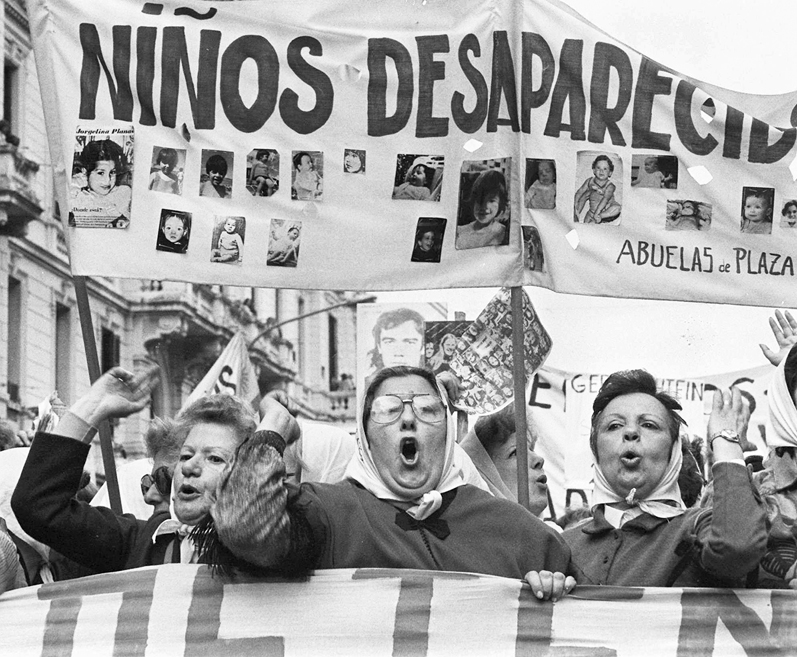A History of World Societies:
Printed Page 1003
A History of World Societies Value
Edition: Printed Page 1018
The Dirty War in Argentina
The Argentine military either held power or set the political rules for decades after it deposed populist Juan Perón in 1955 (see “Populism in Argentina and Brazil” in Chapter 31). By 1973 the armed forces conceded that their efforts to “de-
In March 1976 a military junta took power and announced a Process of National Reorganization. Influenced by French military theorists who had been stung by their defeats in guerrilla wars in Vietnam and Algeria, the generals waged a “dirty war,” seeking to kill and “disappear” people whom they considered a destructive “cancer” on the nation. As one general declared, “First we will kill all the subversives, then we will kill their collaborators, then their sympathizers, then . . . those who remain indifferent, and finally we will kill the timid.”3 Argentine military forces killed between fourteen thousand and thirty thousand of their fellow citizens during the dirty war.
A handful of mothers whose children had disappeared began appearing in the Plaza de Mayo in front of the presidential palace holding pictures of their missing children and carrying signs reading “Where are they?” A growing organization of the Mothers of the Plaza de Mayo was soon joined by the Grandmothers, who demanded the whereabouts of children born to women who were detained and disappeared while pregnant. These mothers were only kept alive until they gave birth. Their children were placed with adoptive families tied to the police or armed forces. Unlike in Chile and Brazil, in Argentina senior Catholic clergy did not advocate for human rights or the protection of dissidents. Instead Argentine bishops praised the coup and defended the military regime until it ended in 1983.

In 1982, emboldened by its success in eradicating its opposition, the Argentine junta occupied a set of islands off its southern coast that were claimed by Britain. Known in Britain as the Falklands and in Argentina as the Malvinas, the islands were home to a small British settlement. Britain resisted the invasion and the Falklands/Malvinas War resulted in a humiliating defeat for the Argentine junta. After the war the junta abruptly called for elections, and a civilian president took office in 1983.
The new president, Raúl Alfonsín, faced a debt crisis similar to Mexico’s that resulted from the junta’s failed effort to implement Chilean-
As the capacity to attract foreign investment through privatization ran out by the end of the century, Argentina faced economic crisis again. In 2001, amid a run on banks and a collapse of the Argentine peso, the country had five different presidents in a single month. Eventually, the economy stabilized during the presidency of Néstor Kirchner, succeeded by his wife, Cristina Fernández de Kirchner. Néstor Kirchner, who died in 2010 while Cristina Fernández de Kirchner was president, prosecuted those responsible for violence during the dirty war again. The Kirchners’ governments retried and convicted members of the junta and also prosecuted people further down the ranks of the police and the armed forces.